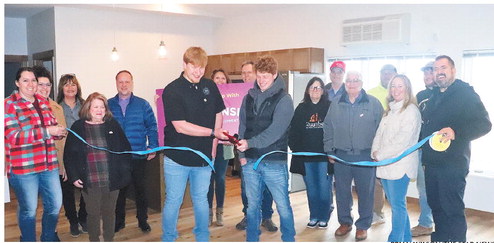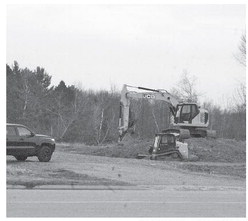Courtney optimistic for region’s economic future
The Medford Cooperative says the community’s economic future is still looking bright, but that they’ve had their fair share of troubles along the way.
“We have grown significantly in the last 10 years or so,” said co-op general manager Chip Courtney. “We’ve about doubled the size of our trade territory, we’ve been extremely aggressive in that initiative and it’s worked really well for us... We go from Ladysmith to Michigan, down to Colby, and all points in between.”
“We’ve had some ups and downs as far as sales go,” he continued. “We are really [invested] in the energy side of our business, it’s about half our business... we are seeing some significant declines here just in the last 10 days or two weeks, about 20% of the market value has come off the energy complex.”
Courtney noted how different the town began to operate when larger stores began to move in: “We had a major competitor move in on the north side of town, Wal-Mart, which changed the economic face of Medford, as it generally does in all small communities.”
He noted that while the co-op managed to stay profitable, they saw their overall retail sales drop about 15%.
“That 15% is where you make your money,” said Courtney. “The first 85% pays the bills.”
Courtney discussed how local commodities also haven’t been doing the best over the past couple weeks.
“Somewhat unusually, it seems that just about all agricultural commodities are on the low end,” he said. “Grain, milk, mink, all of those things are not where they should be to sustain longterm market viability, and that’s concerning.”
Courtney said that larger stores, have really been industrializing the community and taking a large portion of the consumer base.
“If you look around, you look at dairy for example, you see fewer yet larger farms,” he said. “It’s all about squeezing that last cent out of expenses.
But, Courtney says, just because large industry stores have a larger amount of patrons, it doesn’t mean they are the best shopping option around, and that “bigger doesn’t always mean better.”
Despite that, the economy is still looking good overall, with several small caveats.
“We have a lot of opportunities,” said Courtney. “Increasing employment, increased traffic, increased tourism.”
“The economy has been booming up until a week and a half ago,” he added with a laugh. “We’ll see what happens now.”
While looking at the opportunities being presented by the vibrant economy, Courtney views the dip as a temporary phenomenon and not indicative of an upcoming valley in community wealth.
Courtney sees Medford’s upcoming Culver’s and Kwik Trip locations as great chances to gain access to entry level employment, especially with competition between the stores in finding their new employees, but he isn’t sure if they’ll be staffed to their expectation.
“Culver’s are moving to town, they want 50 [workers], Kwik Trip with two stores, they’ll probably want 50 a piece. I don’t know where they’re coming from. So for those more entry-level jobs, it’s becoming an option. It does bring some opportunities, full employment is good, but where do the people come from.”
Online shopping has had a noticeable affect on the co-op as well, with Courtney citing Amazon as an ever growing player in the market.
“National figures show between six and nine percent of typical grocery store purchases are controlled by Amazon,” he said, noting that groceries make up just a minuet portion of Amazon’s inventory.
The missing sales hurt small stores significantly, forcing many of them to close their doors.
“What happens then, often the independent owners in the town become fewer,” Courtney acknowledged. “That’s just a fact of life, like it or not it’s just the way it is, and we’re seeing more of that.”
Instead of trying to directly compete with the larger stores, the co-op tried devising strategies to retain their normal business.
“We focus on value,” explained Courtney. “That’s kind of a cornerstone, if you look at County Market for example. We talked about what did we do, what was our thought process when Wal-Mart came to town. Wal-Mart has a certain price driven business philosophy that has made them the largest retailer in the world.
“So what is our niche going to be, we’re not going to beat them at pricing, so we focus more on quality, on our perishables, on our overall value. If you come to County Market, we’re not the cheapest, but we like to think that our quality is on par or better than anybody else’s.”
The quality-and-value over price business model has had mixed success, with Courtney admitting that some people care only about the price of a product.
Setting aside large-scale and online retailers, the co-op predicts that an economic swell is soon to come.
“I think there’s going to be good overall market growth,” he continued. “If you look at total retail dollars spent in our community, regardless of where there spent, I think we’re going to continue to see some pretty strong growth.”




